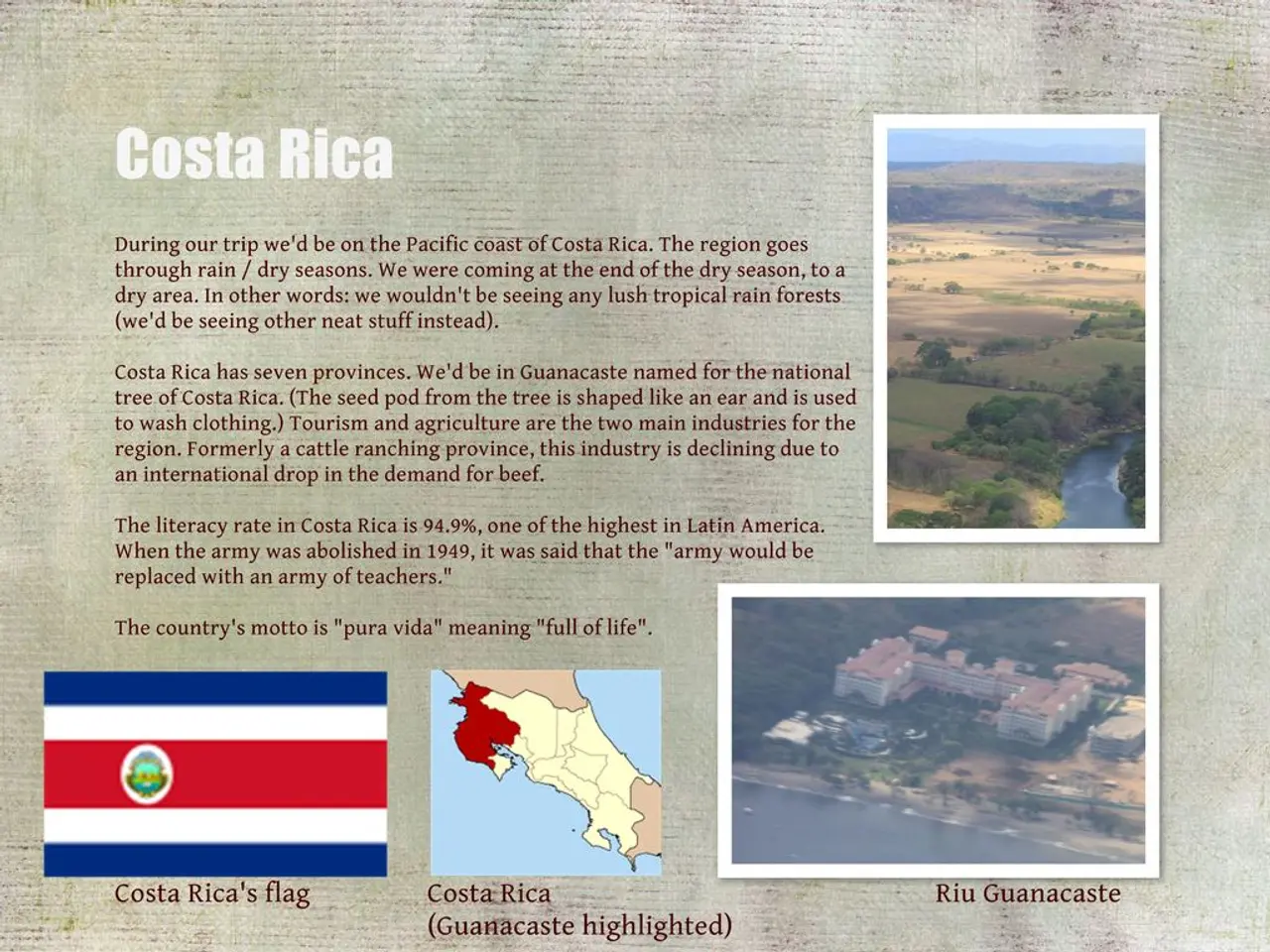US-EU Customs Deal on the Line as Merz and Macron Urge Swift Agreement with Trump
Merz and Macron advocate for a prompt customs agreement with Trump
The clock is ticking as the US and the EU races to strike a customs agreement before the deadline set by President Donald Trump on July 9. The latest US proposal is now under review in Brussels. German Chancellor Friedrich Merz and French President Emmanuel Macron are leading the charge for a quick resolution.
With less than two weeks to go, the pressure is mounting. Merz and Macron have encouraged the EU Commission to reach a quick agreement with the Americans. Commission President Ursula von der Leyen stated that the EU is prepared to reach an agreement, but is also preparing for the possibility of no agreement being reached.
During a summit, Merz told reporters, "We need to reach a quick agreement, a quick deal with the Americans in the less than two weeks remaining." Macron echoed this sentiment, calling for "a swift conclusion of an agreement, it should not drag on any longer." However, he added, "not at any price."
Merz previously slammed the Commission's negotiating tactics as "too complex." But he has softened his criticism, stating that in the remaining time, a broad agreement can't be reached in detail.
The Chancellor is not alone in his stance. Few believe that Trump can be persuaded to abolish all mutual tariffs in individual areas, as the Commission initially proposed. Instead, talks are focused on a general agreement along the lines of a "Swiss cheese" model, with exceptions in key sectors such as the automotive industry and steel and aluminum exports.
Von der Leyen provided an update on the negotiations' status, stating that the EU is currently evaluating the latest US proposal.
The U.S. President's trade policies have created a global dispute with trading partners. The US raised tariffs on steel and aluminum imports to 50% in early June, excluding the UK, which remains at 25%. This move hardened the trade stance in certain areas[1].
Though the US had temporarily suspended some tariffs since April for 90 days as part of reciprocal tariff measures, the time is short, putting the US and EU under intense pressure to reach a deal[3][4]. The EU's response to US tariffs has been cautious, emphasizing red lines and retaliation measures to counterbalance Trump-era tariffs, reflecting ongoing distrust and unresolved differences[2].
Negotiations have also been complicated by additional US tariffs on sectors like automotive, further straining the US-EU trade relationship[3][4]. Recent meetings aimed at advancing the trade talks have been canceled or stalled, causing delays just ahead of critical deadlines like July 9, 2025[5].
In summary, despite high-level political pushes for a swift deal, the US-EU customs agreement negotiations are at an impasse, with rising tariffs, canceled meetings, and reciprocal tariff threats threatening to stall progress. The upcoming July 9 deadline is a critical point to watch for any breakthroughs or further setbacks[5].
- Tariffs
- Donald Trump
- Friedrich Merz
- Emmanuel Macron
- Ursula von der Leyen
The political leaders, Friedrich Merz and Emmanuel Macron, are urging the EU Commission to negotiate a swift agreement with President Donald Trump to avoid escalating tariffs. Despite the pressure, the status of the negotiations remains uncertain, as the EU evaluates the latest US proposal and the Commission prepares for the possibility of no agreement.






